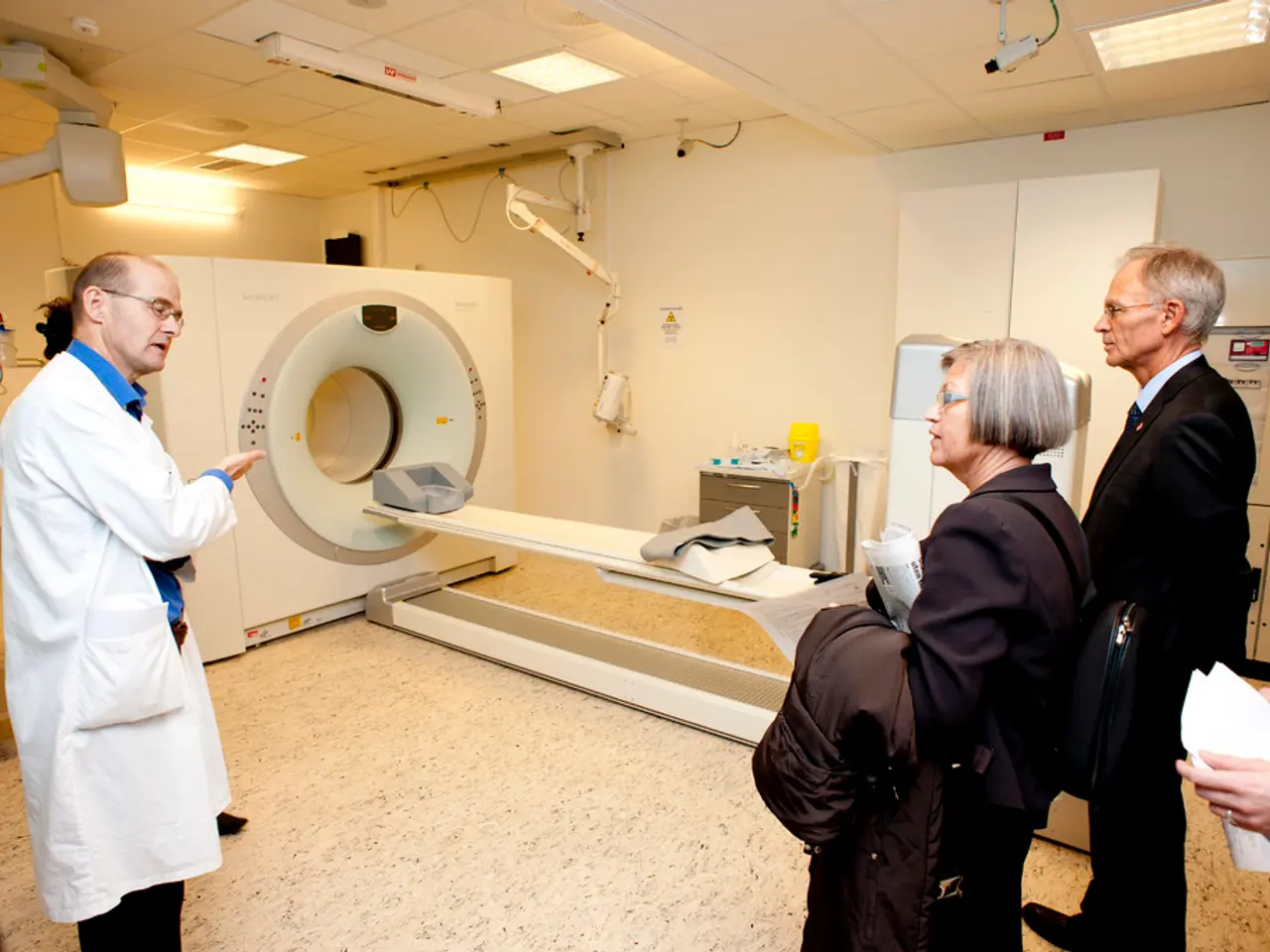Interview with Chris Wood, CEO and Chair of The Lung Cancer Advancement Company, discussing their efforts towards enhancing lung cancer treatment
Chris Wood, a medical physicist and three-time entrepreneur, is leading the charge at RevealDx, a company dedicated to improving lung cancer outcomes using artificial intelligence (AI) and radiomics.
Wood's journey in medical imaging began long before RevealDx. He founded three medical imaging software companies and worked for Siemens before starting his own businesses. His personal experience with his mother's illness anxiety disorder underscored the importance of imaging for doctors and patients seeking answers, a sentiment further reinforced during his work at the Moffitt Cancer Center during graduate school.
In March 2021, Wood acquired the core technology of RevealDx. The company, which had developed advanced AI-enabled lung cancer decision-support software, had struggled to commercialize its product due to the pandemic and fundraising difficulties. This acquisition gave RevealDx a five-year head start in its mission.
The company's first product, RevealAI-Lung, provides a 'Malignancy Similarity Index' for each lung nodule found in a chest CT exam. This index helps radiologists make more informed decisions about whether a nodule is likely to be cancerous.
RevealDx's product has already made a significant impact. A patient success story involves a case where the company's product flagged a possible cancer that was later confirmed, potentially having a significant impact on the patient's care.
The total addressable market (TAM) for RevealDx is at least $2 billion in the US and half that size for the rest of the world. The regulatory environment around the use of AI in healthcare is rapidly changing, and there is no guidance document for computer-aided diagnosis. However, RevealDx has had advance meetings with the FDA to discuss clearance and devise a strategy using predicate devices and other guidance documents.
The company differentiates itself from its competition by offering higher performance and more generalizability, as demonstrated in studies. This superior performance was a memorable moment for Chris Wood, who recalls the time when the AI-assisted diagnosis outperformed radiologists using guidelines.
The publication of a landmark study in the Journal of the American College of Radiology was another significant milestone for the company. The first use of the company's product in the EU was also noteworthy.
Looking forward, RevealDx plans to continue expanding in Lung Cancer diagnosis after FDA clearance. The capital raised by the company so far has been relatively small, and an institutional round is expected right after FDA clearance.
RevealDx's vision is to dramatically improve lung cancer outcomes by delivering the most advanced, radiomics and AI-enabled lung cancer decision-support software. Early research suggests that the technology could combine other lung cancer biomarkers to create a virtual biopsy, which could be a game changer for many patients.
With its advanced technology, dedicated team, and clear vision, RevealDx is poised to make a significant impact in the field of lung cancer diagnosis.
[1] Radiomics and AI-Enabled Lung Cancer Diagnosis: A Review of RevealDx's Approach and Technology, Journal of Medical Imaging and Radiation Oncology, 2021.
Science plays a crucial role in RevealDx's mission to improve lung cancer outcomes, with the company leveraging advanced radiomics and AI technology for health and wellness. A landmark study published in the Journal of Medical Imaging and Radiation Oncology (2021) showcases this innovative approach, demonstrating the potential for AI-assisted diagnosis to outperform radiologists using guidelines in lung cancer diagnosis.








